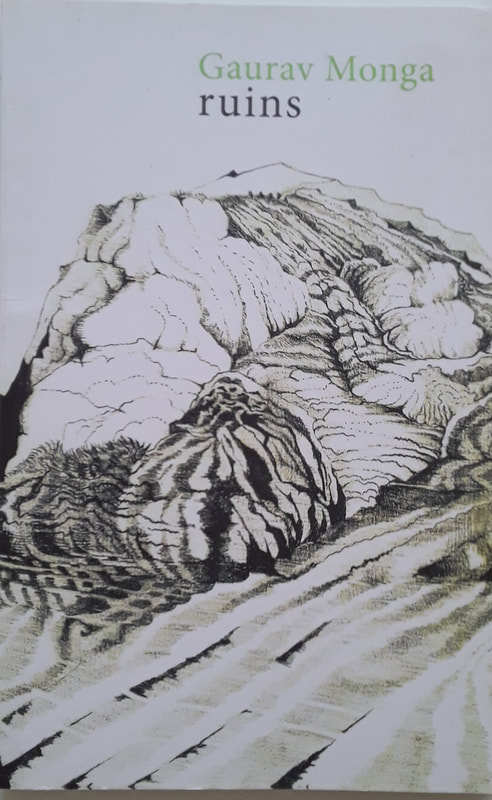|
Albert Speer, the German architect, a personal friend of Adolf Hitler, developed in the 1930s a “theory of ruin value”. Faced with the vision of the imposing monuments erected by the Nazi regime (like the famous Zeppelinfeld, designed by himself), Speer had a vision of that huge stadium complexion hundreds, thousands years in the future, when Reich himself had shattered and everything was decay and ruin. Speer wrote on his theory: “He [the architect] chooses the stone, which can offer him all possibilities to form, and which is the only material to pass down tradition—the tradition that remains for us in the stone buildings made by our predecessors—to future generations because of its constancy”.
This was the fascist theory of ruins, which intended to find mythical value in the piles of rubble, a static and perpetual, in addition to boring, ritual. But Ruins, Gaurav Monga's new book (edited by Desirepaths Publishers with a beautiful cover art by Anil Thambai, in which the suggestions of the organic and inorganic, the built and the natural, are prospected), offers us another possibility to understand the ruins – unpredictable, complex, stimulating. The ruins imagined by Monga were scattered in every corner of our society and even the newest buildings, in the pages of his strange book, are already decaying relics. Monga's prose is blessed by vast subtlety: a mixture of narrative perception, vague memory, aphoristic speculation and poetic meditation, it escapes all possible definitions and points to insidious and indeed innovative directions and developments within the cultural perspective known as neodecadentism. New horizons, explored from trailblazer perspectives that go beyond even the most subversive grounds inherited from psychogeography. In several moments of Ruins, Monga speaks of the childlike pleasure of collecting fragments of the piles of rubble abundantly available in the big cities, constantly under construction/demolition to a point where it is no longer possible to identify where the ruin ends and the new building begins. This is the pleasure that the reader can obtain from this Gaurav Monga's book.
0 Comments
Leave a Reply. |
Alcebiades DinizArcana Bibliotheca Archives
January 2021
Categories
All
|

 RSS Feed
RSS Feed
